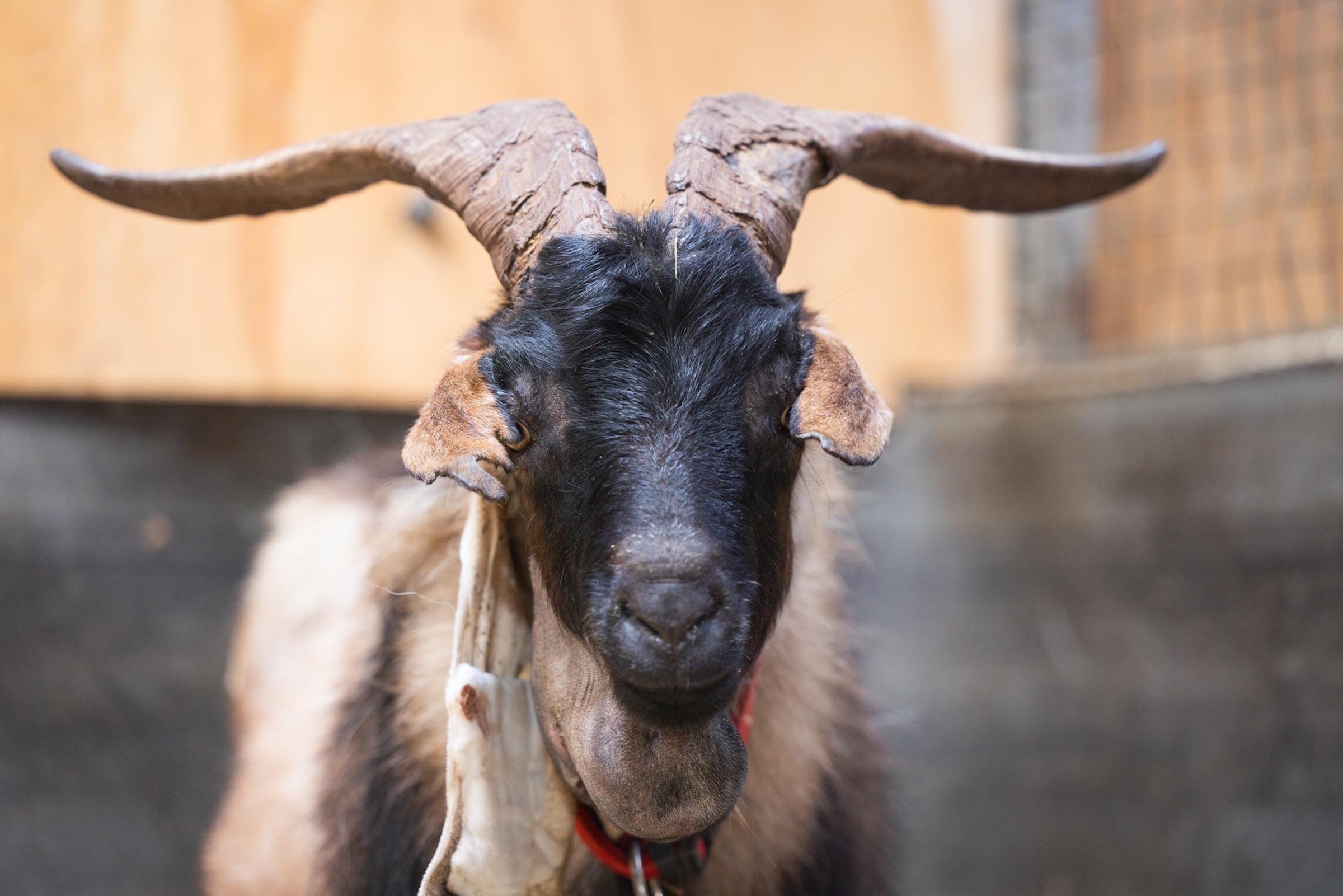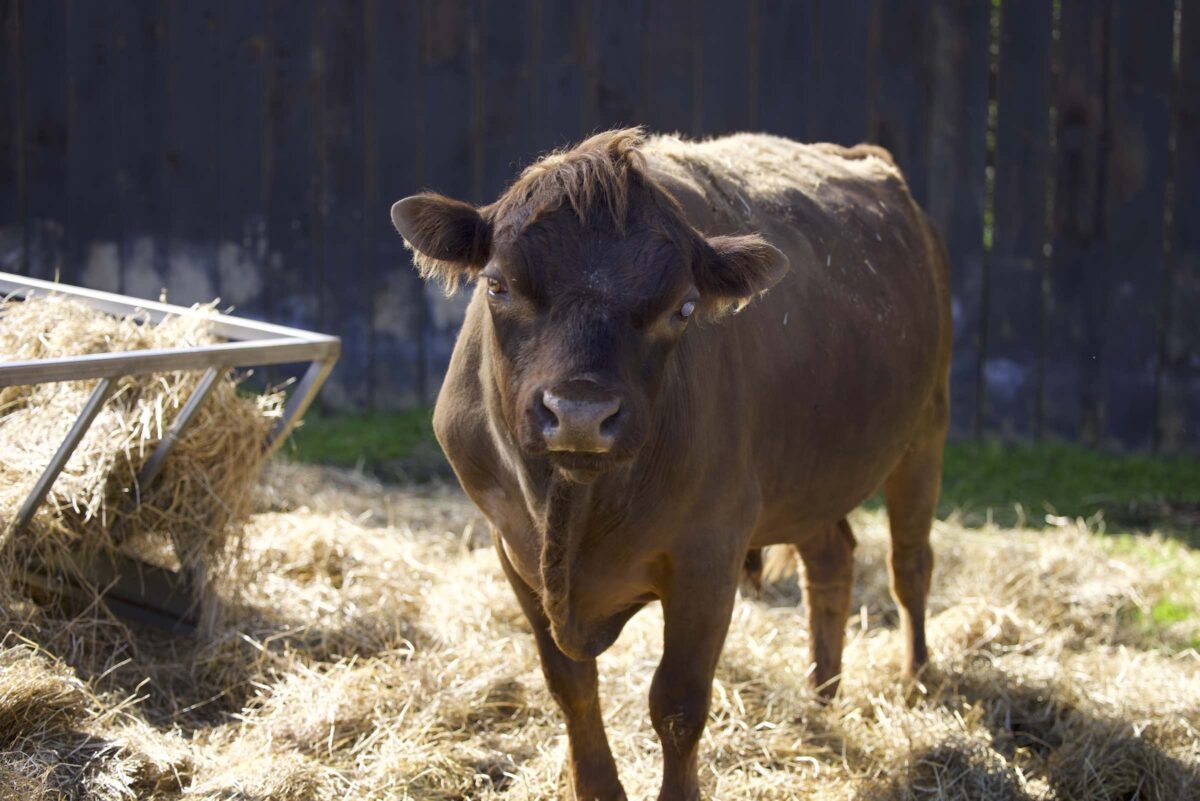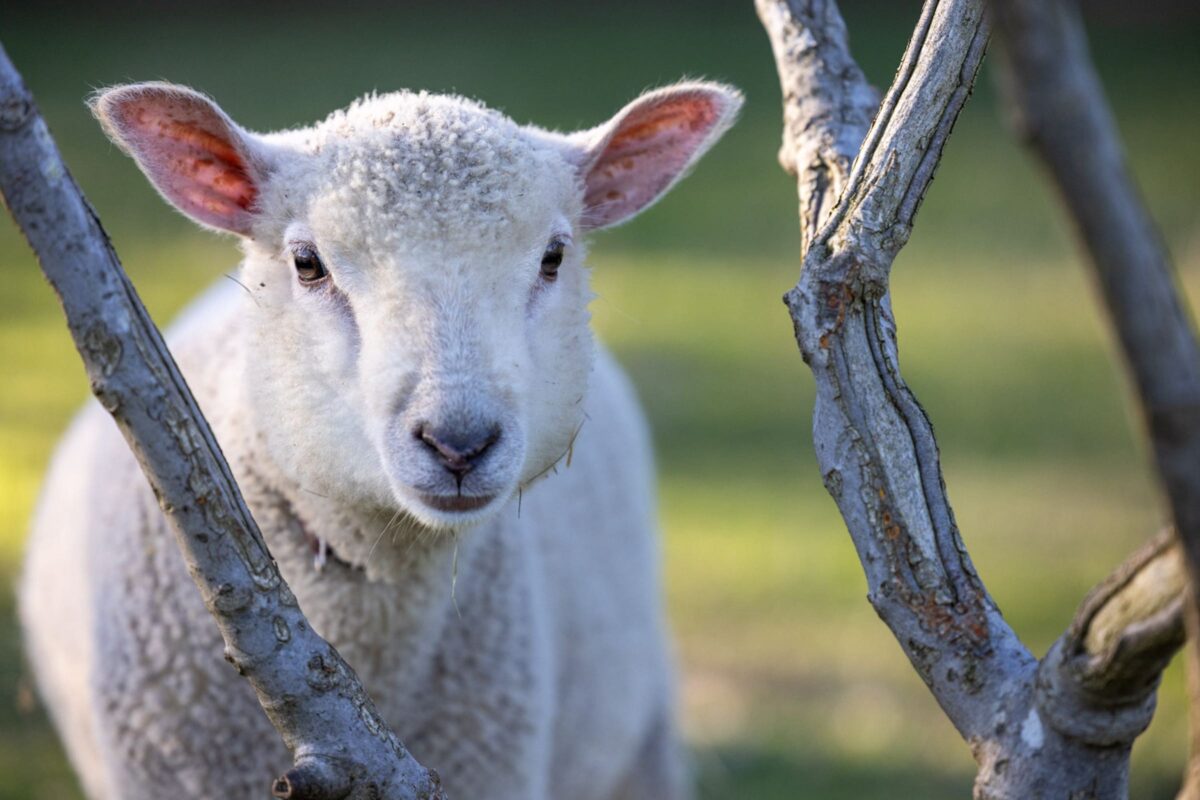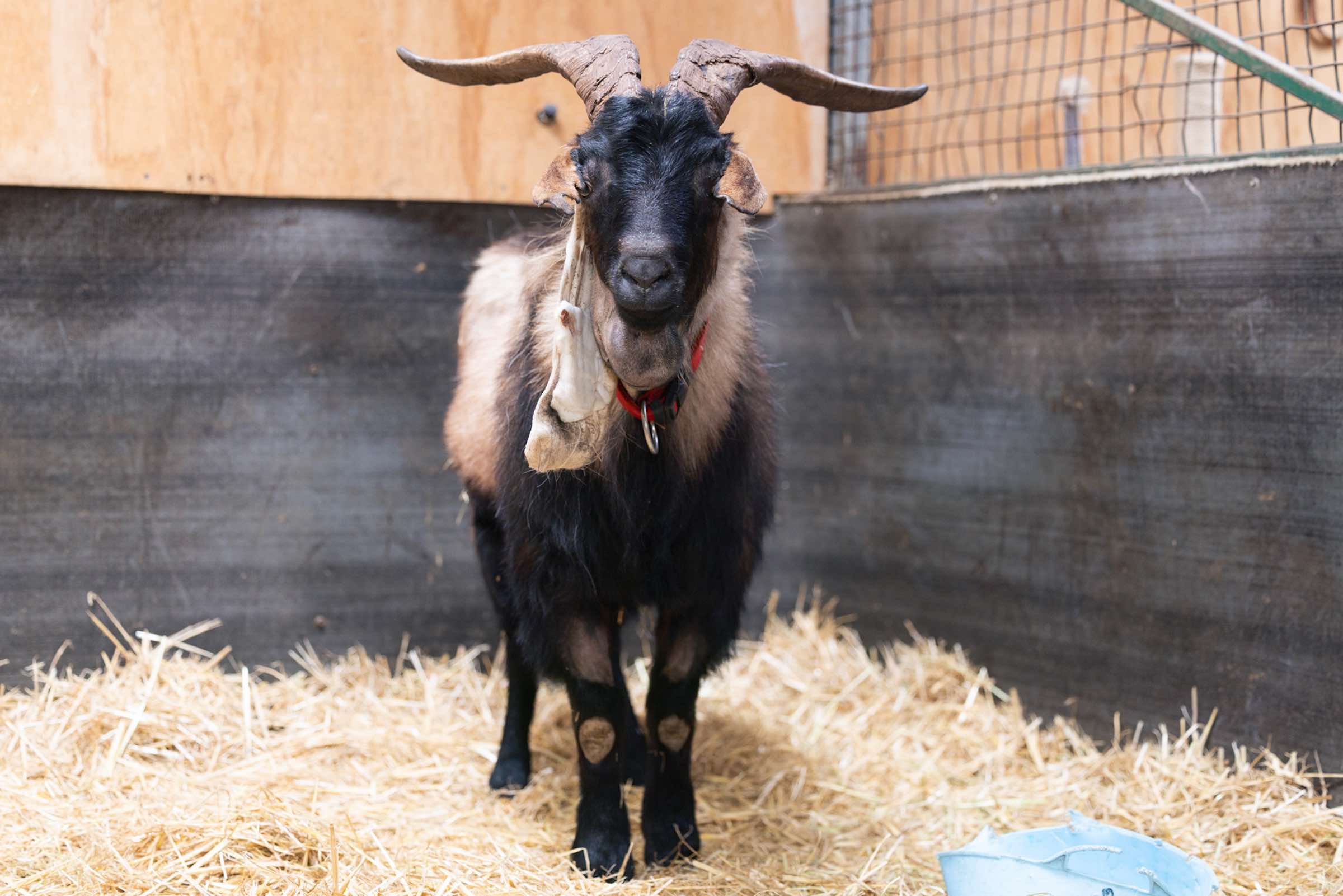
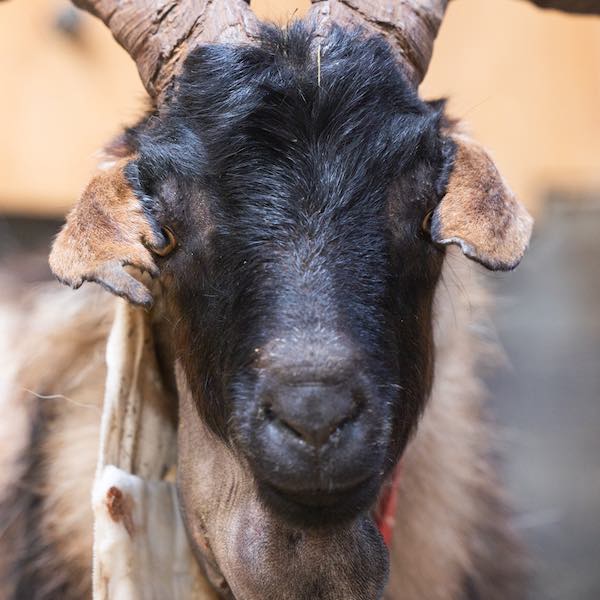
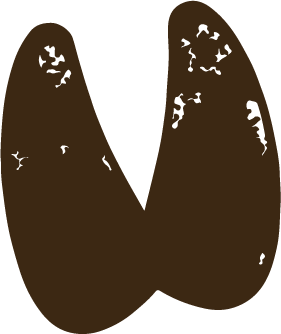
Solomon: Your Wild & Precious Heart
Though he didn’t have a name when we first met, he soon would.
Proud, yet scared. Outnumbered, yet defiant. Deft and agile, but running out of places to flee. He had taken refuge on a property a million miles from his home. It looked different. It smelt different. But it was the best he could do. Like a fish out of water, Solomon was a goat out of his rangeland.
And his oxygen was running out.
Another rangeland goat who had broken free from the confines of a local slaughterhouse.
Empathy swept over us as we imagined his thoughts: nothing familiar, nowhere safe, no one of his kind to follow.
And then the shot rang—the little green dart finding its mark on his flank. His hooves fought his falling. He refused to surrender until the very end. Adrenaline surged. His dignity roared.
And then he fell.
As we knelt beside him, the second thing we noticed—after his unmistakable, musky scent—were his magnificent horns. Ancient and glorious. Scarred with stories well earned. Etched by time and conflict, their worn grooves held the quiet wisdom of the wild.
Part of us longed to take him back—to his tribe, to his freedom. But those places don’t truly exist anymore. Mapped, mined and marked for slaughter—these lands speak to the quiet tragedy we humans have authored across this wide, brown land.
Solomon is one of the lucky few. He has found sanctuary. Millions more never will.
Bred for hardiness, their ancestors were released, escaped or abandoned on crown land, leaseholds and pastoral sprawls. Highly adaptive, fiercely intelligent, they survived where little else would. And for this, they pay the ultimate price—with their life, their liberty, their wild and precious hearts.
Mustered by helicopter or chased by vehicles, they are rounded up and trucked long distances—crammed, trembling, terrified—towards their cold and bitter end. Their last days filled with confusion, fear and human indifference.
And yet, every now and then, one listens to their wild and precious heart.
Solomon did. And now, in sanctuary, he lives the peace his name promises.
And as his story stays with us—in the quiet corners of our minds, where we, too, feel the tug of our wild and precious hearts. The part of us that yearns to live without fear. Without servitude. Simply, to be who we are.
Solomon reminds us that non-human animals, though different in form, are not so different in essence—in memory, in will, in love of life, family and kin.
And when we see this, we are called to ask:
What would we allow?
What would we defend?
Who would we harm?
Because if Solomon’s wild and precious heart has taught us anything, it is this: the desire for freedom is not a human trait. It is a birthright of all beings.
And when we honour that in others, we take one brave step towards restoring it in ourselves.
